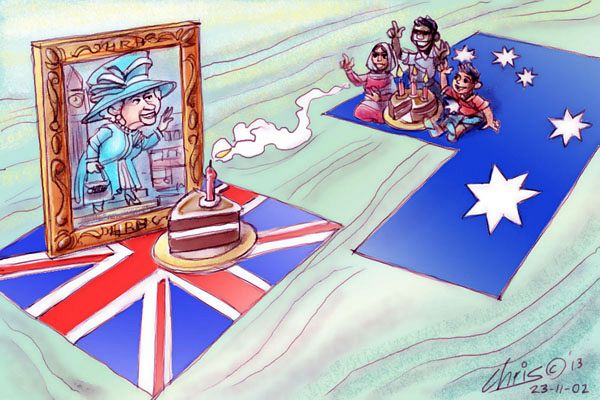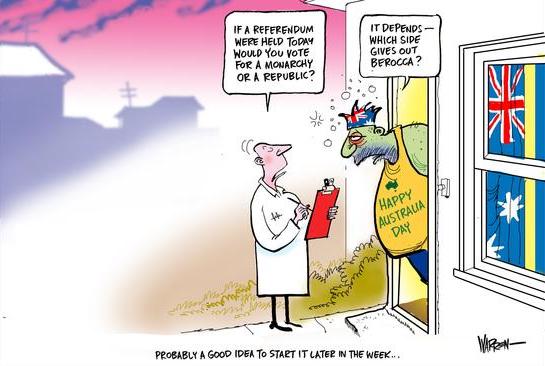The question of Australia leaving the Commonwealth and becoming its own completely republic state, comes up every few decades or so. The last referendum happened when I was a child in late 1999. With the death of Queen Elizabeth II the question arises once again as King Charles III takes the thrown and becomes our next unelected head of state.

Role Within Our Parliament
Monarchy within the Australian governmental system is a conundrum given the system is suppose to embody democratic elected leadership. The monarchy therefore could be inferred to be mostly ceremonial, this isn’t legally and in reality the case however. The main crux of the monarchy’s power within the Australian Parliament is through Royal Assent, which is the final stamp of approval by the Governor General on behalf of the monarchy. A bill may only become law after the Royal Assent has been given and can be revoked at anytime within one year of being given. Whilst this is merely a formality in present day as most bills are now signed by the Governor General at their residence rather than by full ceremony. However, in the unlikely but still completely legal event a monarch so desires, they could completely block any new bills from being passed by the government. This could include the budget bill(s), any climate action policies, privacy & security, etc. anything is up for grabs. Even more frighteningly, this can happen after the fact as well. For example a bill to enshrine the right to free speech, which is only covered under common law currently, could be over turned if the monarch felt that it was being used to their dislike, see the current protests of #NotMyKing.
Head of State
The Australian parliamentary system is a constitutional monarchy consisting of three branches: the legislative assembly also known as Parliament, the executive and the judiciary. Whilst the monarch is part of the Parliament along with the senate and house of representatives, the executive branch is vested solely in the monarch or more practically their representative the Governor General. The Governor General has power over the parliament that is often understated along with being often mischaracterised as mostly ceremonial. A great example of how this is untrue is the 1975 Constitutional Crisis, the actions of the now King Charles III don’t inspire a whole lot of confidence that the Crown will be on the side of the people here, let alone the democratically elected officials in matters of state. The Queens response at the time shows exactly how the GG is the practical head of state, not to mention the Governor General is the actual Command in Chief of the Australian armed forces. Given the recent events with the scandal of Governor General Hurley and the secretive & opaque bestowing of multiple ministerial powers within a single individual in the former Prime Minister Scott Morrison. These actions have been labelled as totalitarian and undermining of the parliamentary system.
Republic Then?
Support for a republic has been growing in the wake of the Queen’s death and the King’s succession. Recent calls to disassociate from the monarchy are in part fuelled by the not so distant history of colonisation with the exploitation, subjugation, expropriation, not to mention the many atrocities and genocides of cultures and their peoples that go hand in hand with it. Forming a separate constitutional republic would mean amending the Australian Constitution via a referendum. The last referendum had an almost exact split of 60:40 with the No’s taking the majority. The changes needed to replace the monarchy in the constitution require a referendum. Looking through the media coverage of public sentiment on changing to a republic there are of course the usual fanatics on either side but the general feeling seems to be that most people don’t feel much will change with the ruling elite still coming out on top and the everyday person will still be under heel. This may be the reason that a lot of politicians show reluctance and are hesitant to change up the status quo of government, the current system suits them just fine. Wouldn’t want the public to realise how they can actually change the system, then they might get crazy ideas like removing corporate interests via donations, enforcing public social policies and stopping privatisation of public infrastructure & crucial services. Wouldn’t that be a crazy notion.

Sources
https://peo.gov.au/understand-our-parliament/how-parliament-works/system-of-government/australian-system-of-government/
https://www.gg.gov.au/about-governor-general/role-governor-general
https://www.aph.gov.au/About_Parliament/House_of_Representatives/Powers_practice_and_procedure/Practice7/HTML/Chapter2/Federal_Executive_Council
https://www.theguardian.com/uk-news/video/2022/sep/13/not-my-king-the-anti-monarchy-protesters-being-threatened-with-arrest-video-report
https://norepublic.com.au/republican-threat-of-foreign-intervention-2/
https://www.aph.gov.au/About_Parliament/House_of_Representatives/Powers_practice_and_procedure/00_-Infosheets/Infosheet_20-_The_Australian_system_of_government
https://www.aph.gov.au/About_Parliament/Senate/Powers_practice_n_procedures/Constitution/chapter2
https://independentaustralia.net/politics/politics-display/governor-general-should-be-accountable-for-role-in-morrison-scandal-,16672
https://en.wikipedia.org/wiki/Australian_head_of_state_dispute
https://en.wikipedia.org/wiki/1975_Australian_constitutional_crisis#Royal_involvement
https://www.aph.gov.au/About_Parliament/Parliamentary_Departments/Parliamentary_Library/pubs/BN/2012-2013/AustralianRepublic
https://independentaustralia.net/australia/australia-display/indigenous-australia-and-an-australian-republic-moving-in-the-same-direction,8681
http://louisenordestgaard.com/Republic.html
